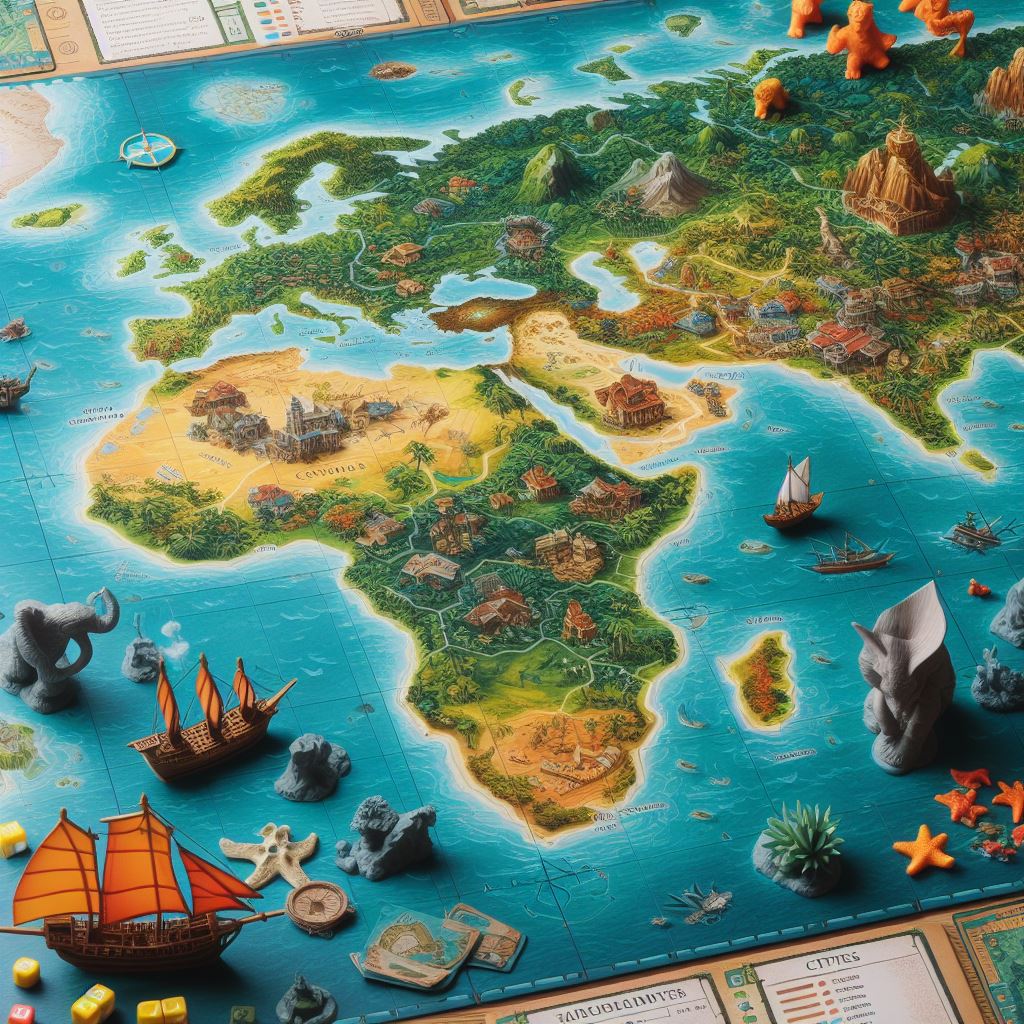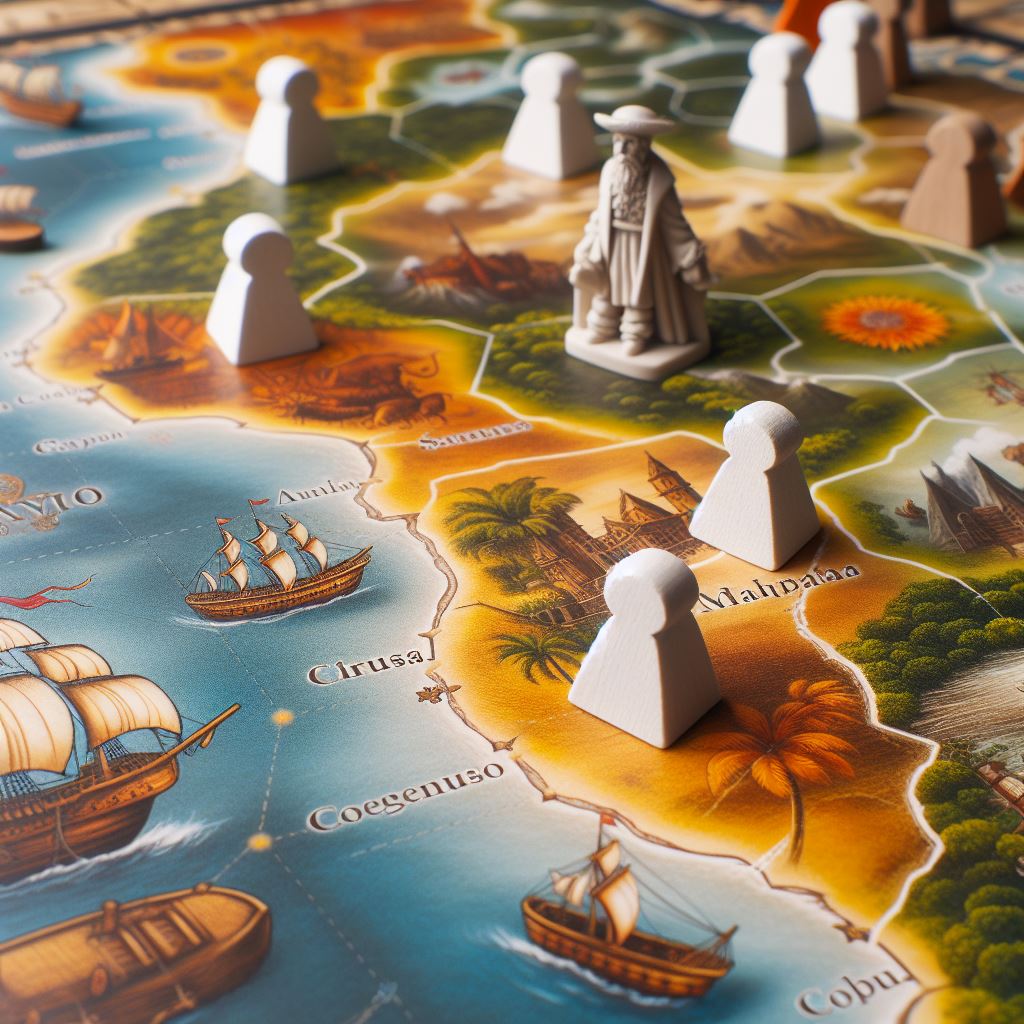Board game sales have been on the rise during and after the Covid-19 pandemic, with a clear growth in games targeted towards families and fans of strategic games. As the games are still generally made in countries sharing western or Eurocentric values, the views and stereotypes about other cultures have remained an ingredient within the games. In recent years this has sparked widespread criticism about the implementation of these themes, where the flawed and stereotypical representations of indigenous people have been chastised. Timo Sedelmaier and Linda Baum analyzed an online group discussion related to these issues using the popular board game Santa Maria as an example.
Post-colonial studies concentrate on the aftermath of European colonial rule. They explore the continued experiences of economic, political, and social exploitation within the colonial legacy. One key example of this is orientalism, coined by Edward Said, which sees the representation of Eastern world countries and cultures as uncivilized and inferior compared to Western countries. This Eurocentric view of the world was used to legitimize colonialism and violence.

The game chosen for the study was Santa Maria (2017), designed by Kristian Amundsen Østby and Eilif Svensson. It is described as a regular so-called Eurogame, originally also called “German games”, which focus mainly on game-mechanics, in this case involving manipulation of resources, trading, and worker placement. The main goal of the game is to establish a successful colony in South America. The reason for choosing Santa Maria as the object of the study was because it ranks highly on the Boardgamegeek platform of popular board games, has a colonialism-based theme, and abundant discussion on the site’s game forum. Also, the fact that the game’s designer took part in the discussion was one extra factor of interest.
The researchers analyzed the forum posts through qualitative analysis to find relevant topics and arguments from the discussions. This included creating a category system and conducting text retrieval. Included in the analysis were 34 comments by 26 users on the forum thread discussion with the heading ‘Why the colonial theme?’. These online discussions are noted by their anonymity, where most of the people associated are using nicknames.
The discussions themselves revolved around the chosen theme of colonialism and the way it’s addressed in the game. On the one hand people criticized the theme and its implementation but on the other hand many noted that problematic subjects should also be allowed to be used and not shunned upon. The researchers found that the discussion repeated the same arguments. There were also some cases of whataboutism, where the focus of the problem was shifted to other games. The commentators had differing opinions about the simplified way of presenting the indigenous people, noting that it results in distorting history while others argued that this is better suited for the player’s understanding regarding the subject matter. One example of the former was the game’s use of a teepee as a symbol, even though the indigenous people of South America didn’t inhabit those kinds of installations. The game’s designer Kristian Amundsen Østby justified this action by saying that the teepee is merely just a highly popular symbol and that way an appropriate choice.
These discussions show that the theme of colonialism isn’t irrelevant in discourse about board games. But is the theme self-evident enough to explain atrocities attributed to colonialism in the rules if the game itself doesn’t acknowledge these in any way? The discussion is likely to continue as highlighted that colonialism is and has been a popular theme in board gaming.
Sedelmaier, T., & Baum, L. (2022). The Controversity About Colonialism in Board Games – Illustrated by the Example of Santa Maria. 91-107. In Jenal, C., Kühne, O., & Edler, D. (ed.): The social construction of landscape in games. Springer VS. https://doi.org/10.1007/978-3-658-35403-9_6
Pictures: created by Tuukka Hämäläinen using Bing AI (Dall 3)
